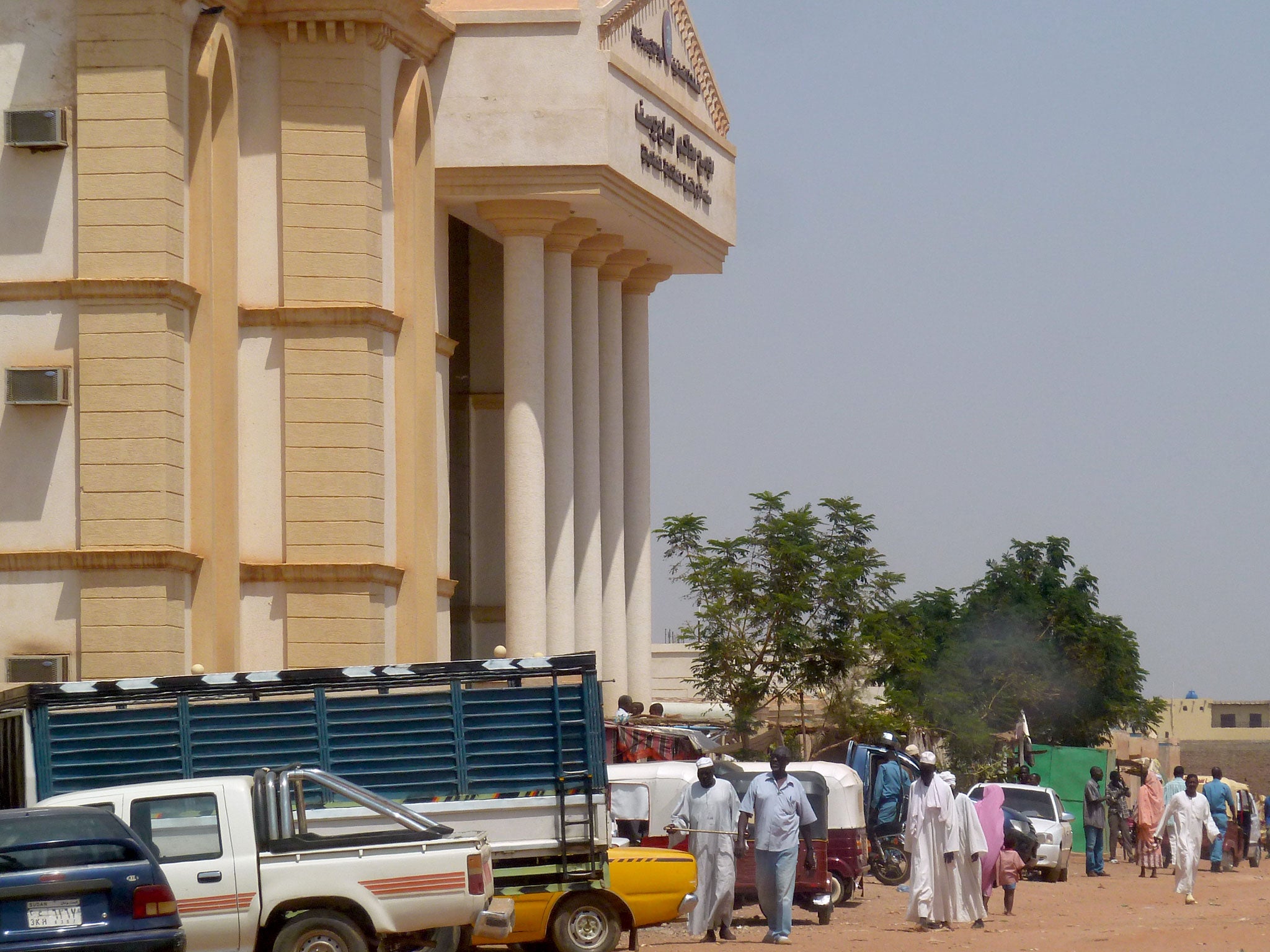The Independent's journalism is supported by our readers. When you purchase through links on our site, we may earn commission.
Why must we stop Boko Haram? Look at Sudan
A pregnant Sudanese woman has been sentenced to death for apostasy. This is what happens when religious extremists take power

Imagine a country where thousands of young women are publicly beaten each year for daring to go to school or for the ‘indecency’ of wearing trousers. Imagine courts that sentence an eight-month pregnant woman to death for converting to Christianity and hold her and her young son in jail. Imagine a leader who declares Islamic law will be the only source for his country’s new constitution and says: "sharia has always stipulated that one must whip, cut, or kill."
Is this a nightmarish vision of what Nigeria could be like if Boko Haram were in power? No, it is the Islamic Republic of Sudan today. The situation there shows what it’s like to live under state-sanctioned religious extremism, and provides a clear example of what international inaction might mean for generations of Nigerian women.
The consequences are clearest for poor 27-year-old Meriam Yahia Ibrahim. On May 15 a Sudanese court confirmed that she will be hung for apostasy because Sudan will not recognise her marriage to a Christian. Her experience shows that even if the young girls kidnapped by Boko Haram are isolated, their experience of terror at the hands of fundamentalist Islamists isn’t.
Meriam’s sentence adds itself to a litany of human rights violations perpetrated against women by the Government of Sudan. Like Boko Haram, Sudan’s version of Islam wants to punish women seeking more from life than perpetual pregnancy, illiteracy and submission to men. The latest figures available show that in one year 43,000 women were publicly flogged or beaten in Khartoum state alone. Many were on their way to and from school. The systematic abduction and rape of girls is standard practice.
Like Boko Haram, the Government of Sudan seeks to kill Christians and other ‘kafir’. Since the 1980s the Islamist regime has tried to wipe out the non-Muslim Sudanese in the southern part of the country, hoping to create a pure Muslim and Arab state. After two million southerners died and following pressure from the international community, the southerners had a referendum in 2011 and formed a separate country, South Sudan.
The mass targeting of those who fail to fit into the Khartoum regime’s narrow definition of Islamist citizenship continues in Sudan’s Darfur, South Kordofan and Blue Nile States, far from the gaze of the international community. In early May the Sudanese Armed Forces spent two days dropping bombs on Mother of Mercy Catholic Hospital in South Kordofan state. It is the only hospital serving the embattled Sudanese in the Nuba Mountains, many of whom are Christian. The Sudanese government does not permit humanitarian aid into the area where it has spent the last three years trying to ethnically cleanse its citizens by starvation and disease.
Sudan shows us what happens when religious extremists take power. The situation there allows us to glimpse a future where Boko Haram has been allowed to take control of state functions. The implication is clear: Boko Haram must be stopped.
But first, a word of warning: don’t let Boko Haram become yesterday’s issue. The current international outcry over the schoolgirls’ abduction is encouraging, but we’ve seen selective and short-lived outrage before. In Sudan, the UN voted to impose selective smart sanctions on the architects of the genocide in Darfur, but those sanctions were never enforced. Today, the leaders of Sudan’s regime go on shopping trips in Paris and have surgery in London’s hospitals. How would we feel if Boko Haram’s leader, Abubakar Shekau, did the same?
In 2006 and whilst in opposition, David Cameron was keen to champion harsh measures on Sudan’s leaders (in no less than a comment piece in this very paper), but his sense of urgency has waned since moving into Downing Street. The international community must not offer token gestures in tackling Boko Haram, as they have in Sudan, because it only empowers it to carry on with impunity. Let’s act now to save the young girls in Nigeria and to prevent the atrocities we’ve seen in Sudan.
Waging Peace is hosting a special reception to mark the opening of a permanent exhibition of children’s drawings of genocide in Darfur on Wednesday 21 May at the Wiener Library, 29 Russell Square, London, WC1B 5DP.
Join our commenting forum
Join thought-provoking conversations, follow other Independent readers and see their replies
Comments